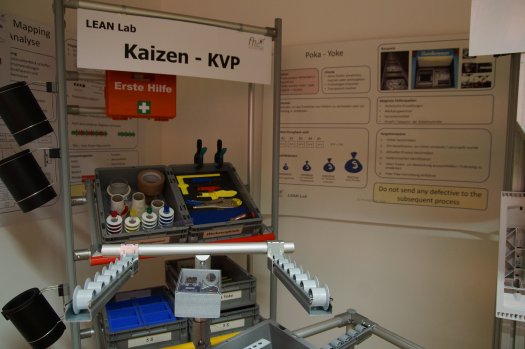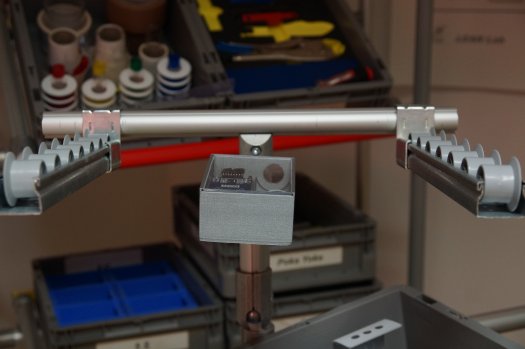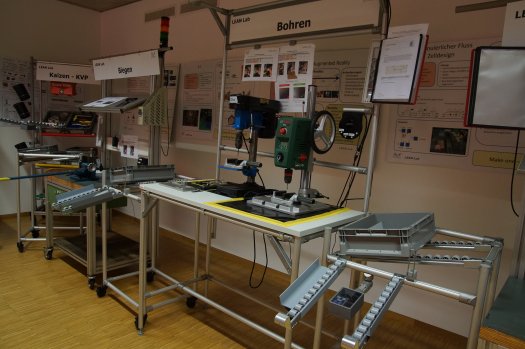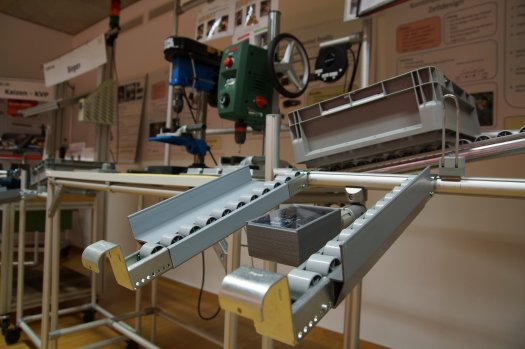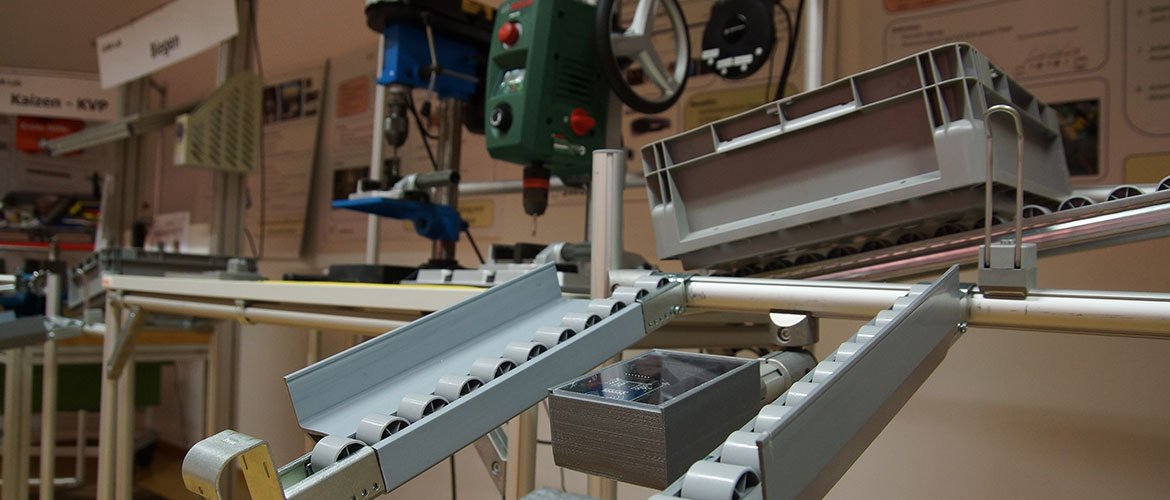
Work step optimization by means of real-time tracking
Within the course of continuous digitization and networking of the Internet of Things (IoT), the automatic identification of objects provides a significant added value and unique usage opportunities for the industry.
Efficient procedures in the LEANLab
The LEANLab of FH Kufstein Tirol consists of seven work stations at which teams incrementally produce a small grandfather clock with up to 15 individual parts. This exercise is also about an efficient modus operandi and systematic ordering of tools in order to avoid redundant work delays within the meaning of lean management.
Student develops a tracking system within the context of his bachelor thesis
Henrik Krüger examined how individual work steps in the LEANLab could be monitored digitally within the context of his bachelor thesis for the degree program Industry Engineering. He focused on RFID order tracking systems, a technology that makes touchless identification and localization of objects possible by means of radio waves.
Krüger drew a casing for the various components in order to integrate the system in the setup of the LEANLab. He created the casing with the polytechnic’s 3D printer and installed additional simple components within it: a WIFI module for networking, a cost-effective RFID reader and a power bank for electricity supply.
Integration of individual work stations
The finished system is installed directly at the respective stations in the LEANLab. Order boxes are used for individual work steps, which contain clock components. The RFID transponders are located below these boxes in the form of an EC card that can be recognized by other readers. Thus, employees can register in the LEANLab how long a box remains at a specific location. Once a work step concludes, the reader sends information to the IoT platform Thingspeak via its WIFI module, which dynamically assesses the identity and exact cycle time of the order.
The tracking system developed by Henrik Krüger makes existing processes transparent and alleviates optimization. Furthermore, the bachelor thesis provides a contribution to critical evaluations of real-time tracking and possible cost-effective implementations in small and medium sized enterprises. The determination of durations of individual work steps is especially helpful for clarifying and visualizing procedures for training in the LEANLab.


